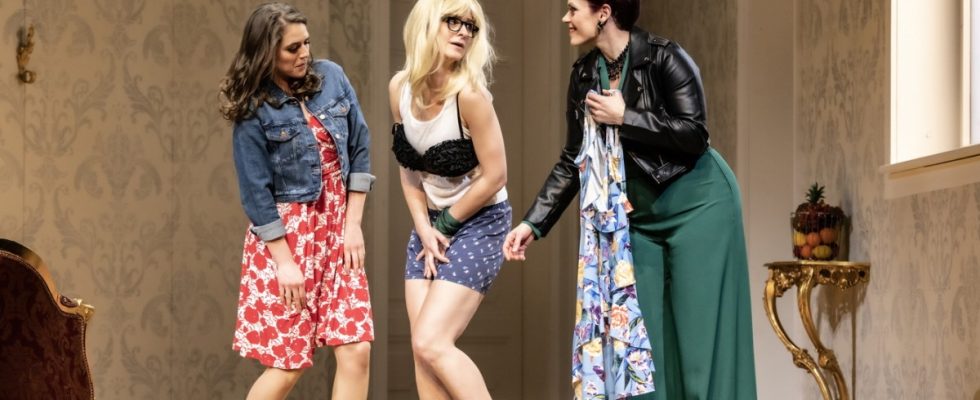Joana Mallwitz once said that she would have liked to have done more Mozart in the five years that she will soon have been general music director at the Staatstheater Nürnberg. With the last opera production she rehearsed there – Mallwitz is going to Berlin at the end of the season – she also proves why. Due to the corona virus, “Le nozze di Figaro” had to wait two years before it could come out. But now everything sparkles. The overture cannot be surpassed in speed, the orchestra drives you right into the action. The fact that some details are blurred due to the furor is forgiven. The drive does it. Again and again in the transitions between the often imaginatively accompanied recitatives and the vocal numbers. It’s elegant, organic, classy.
Otherwise, Mallwitz is at its best when she can build the ensembles. With Mozart, these are often clockworks with counter-rotating wheels, because the figures often have different plans or thoughts. Mallwitz instinctively manages to create the exact polyphony and explore the depth (what does a woman want in a concert orchestra?). She understands Mozart’s “Figaro” consistently as an ensemble piece, all duets, trios, quartets and so on are mini dramas in themselves, in addition to their brilliance the solo arias also lose a bit of their shine. Funnily enough, alongside the abysmal, comprehensive lament of the Count, imposingly sung by Samuel Hasselhorn, Barbarina’s small, comical aria is a highlight here. The way Veronika Loy, here a clever, slightly surly, extremely independent Barbarina, regrets her stupidity of having lost the oh so important pin that sealed the letter to the Count, that’s very funny and shines in wonderfully cool colors. Like a small, beautiful glacier.
Director Jens-Daniel Herzog accurately draws very contemporary characters
Jens-Daniel Herzog, the Nuremberg director, creates very contemporary characters with his ensemble, who is lively in all roles: Cherubino (Corinna Scheurle) rehearses his vows of love as if for a Tiktok performance, the Count and Countess live next to each other in a spacious apartment in an old building. She likes to help herself (like some others) from the house bar, is very sad, which Emily Newton plays touchingly and thus conceals the fact that her voice has long since outgrown Mozart’s realms. He, on the other hand, makes no secret of his philandering, a chic bon vivant.
The character drawings are accurate, the set by Mathis Neidhardt is a highlight. First you see the count and countess in their living quarters, a black rhombus separates them. Figaro unfolds it, in it his and Susanna’s apartment, which is reminiscent of the stately surroundings in terms of wallpaper design, but is sparsely furnished. The layout changes again and again, in the end everything is as closed as it was at the beginning. Outside alone the daughter of the count’s couple.
Daughter? Herzog invents them. A charming girl who is afraid when Daddy is upset, who doesn’t want to hear her parents’ arguments anymore. And that timidly restrains Susanna in the second act, when the furious count goes in search of his wife’s beau (and finds Susanna). This gives new meaning to some of Mozart’s eternal repetitions, above all the girl is a mirror of hardship. Because since everyone here is modern people, you wonder why they don’t just leave. Why not Figaro, the robust Adam Kim (the performance attended was the second, in which two casts alternate compared to the premiere), is simply fed up. Or Susanna? Well, she doesn’t find the Count all that bad. Something is definitely hanging in the balance. And that’s why everyone has to sit on top of each other until the love is resolved.
Andromahi Raptis is the shining star of the evening, always present, awake, charming and angry at the same time, her Susanna is a pure joy. And explains everything; everything the men who are chasing after the women want. A nice evening. And a very worthy finale for Joana Mallwitz, whose actual farewell is a concert on April 28 in the Meistersingerhalle.

